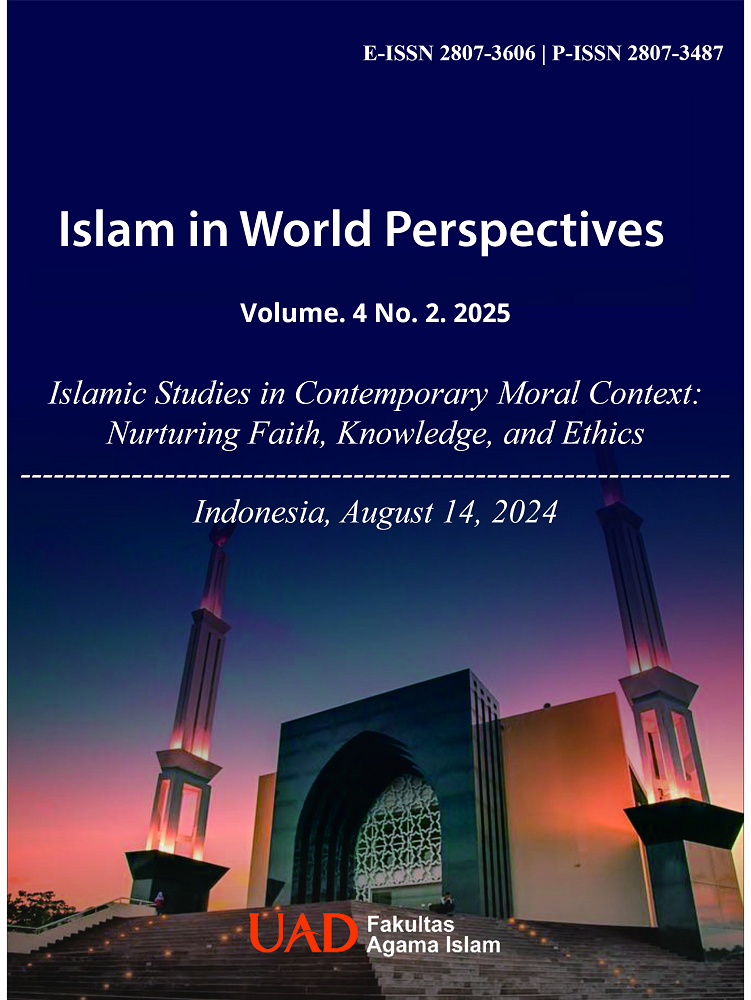The Urgency of Communication Ethics in Social Media in Perspective of The Quran and Hadith
Abstract
The presence of information and communication technology is inevitable, its development is also getting faster and faster. Proven by the birth of social media as a "tool" for society to interact, share and consume various types of content. However, like a double-edged sword, the presence of social media can bring benefits and harms. It is useful to facilitate people's needs, have global connectivity, and explore information. On the other hand, it can bring harm such as desocialization, pornography, the spread of hoax news, and especially the degradation of communication ethics. The massive growth of social media users if not balanced with good communication ethics will have a negative impact on life. This is an urgency that cannot be normalized, so the purpose of the Author to conduct research is to determine the importance of communication ethics in using social media according to the views of the Qur'an and Hadith, where the Qur'an and Hadith are guidelines for life, especially for adherents of Islam. This study uses a literature review method with data collection techniques through journals. The results of the study show that the Qur'an and Hadith have shown the importance of ethics in communicating and have relevance to be the basis for using social media. Reflected in several verses of the Qur'an that show the importance of communication ethics, namely through Surah Al-Hujurat verse 6 and verse 13, Surah An-Nahl verse 125, Surah Al-Ashr verse 1-3, and Surah Az-Zumar verse 33. Then the ethics of communication in social media based on the hadith can be seen from the hadith of Sahih Muslim No. 4721 which explains that honesty is the basis of goodness which is rewarded with heaven. The conclusion is that the Qur'an and hadith provide guidelines, directions and relevant solutions to deal with various problems and always be in goodness. There needs to be an awareness of the importance of communication ethics, especially from the perspective of the Qur'an and Hadith. Ethics in social media should have been taught from an early age considering the massive and rapid development of technology so that it must be balanced with good use and ethics that are in accordance with religious rules and the values contained therein.
Downloads
Published
Issue
Section
License
Copyright (c) 2024 Muhammad Aufakumara Sucipta, Muhammad Dede Puja Kusuma

This work is licensed under a Creative Commons Attribution-ShareAlike 4.0 International License.
Authors who publish with Islam in world perspectives agree to the following terms:
- Authors retain copyright and grant the journal right of first publication with the work simultaneously licensed under a Creative Commons Attribution License (CC BY-SA 4.0) that allows others to share the work with an acknowledgment of the work's authorship and initial publication in this journal.
- Authors are able to enter into separate, additional contractual arrangements for the non-exclusive distribution of the journal's published version of the work (e.g., post it to an institutional repository or publish it in a book), with an acknowledgment of its initial publication in this journal.
- Authors are permitted and encouraged to post their work online (e.g., in institutional repositories or on their website) prior to and during the submission process, as it can lead to productive exchanges, as well as earlier and greater citation of published work.

This work is licensed under a Creative Commons Attribution-ShareAlike 4.0 International License.



